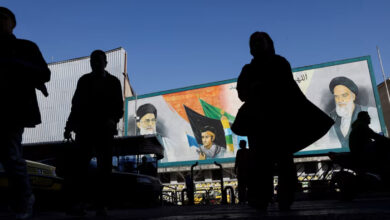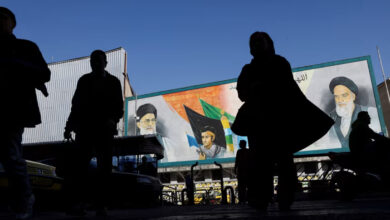Brussels – The European Union significantly extended its sanctions against Iran on Monday, reflecting mounting frustration over a lack of progress in nuclear talks with Tehran.
EU foreign ministers agreed at a meeting in Brussels to add more than 100 new entities to a list of companies and people affected by EU sanctions, designed to put economic pressure on Tehran to abandon its atomic program, EU diplomats said.
The measures, asset freezes and visa bans, add to a range of financial and trade sanctions the EU's 27 governments have already imposed on Tehran.
"The Council adopted legislation today to strengthen the restrictive measures imposed on Iran owing to concerns about its nuclear program," the ministers said in a statement.
World powers suspect Iran is trying to develop atomic weapons under the cover of its declared civilian nuclear energy program, but Tehran says it needs nuclear power to meet growing domestic demand for electricity.
Talks with Iran on suspending the nuclear program in return for trade and technology have ground to a halt.
The EU's foreign policy chief, Catherine Ashton, expressed concern at the lack of progress earlier this month, saying messages she was receiving from Tehran about future talks were disappointing.
"I do urge Iran to think again and to consider coming back to the table … But from the letters that I've received, I don't see that at the present time," Ashton said at the time.
The last talks, held in Istanbul in January, failed to yield results after Iran rejected any notion of suspending the enrichment program in return for benefits offered by negotiators.
EU diplomats said Monday's sanctions list included German-based EIH bank, which specializes in business in Iran.
The United States has already banned business with EIH (Europaeisch-Iranische Handelsbank, or European-Iranian Trade Bank), because of concerns that it finances companies involved in Iran's nuclear program.




